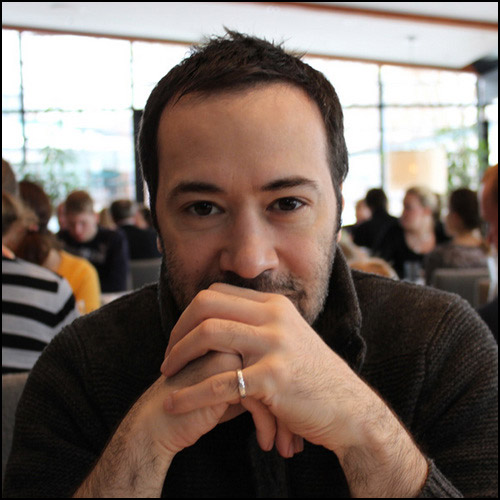Patrick on France 24, and thoughts on the eG8
This week I was invited to guest on France 24’s tech show “Tech 24” (en).
We talked about the eG8, as well as podcasting in their “gadget” section. Here it is for your enjoyment; please let me know how I did in the comments: I’m always looking for feedback, even if that feedback is “you look like a tool”. 🙂
So big thanks to Eric and Rebecca for inviting me to the show. And I’m also adding a few words after the break, because I think a lot could be added/corrected to what I said on the show. Please do take a minute to check it out.
Tech24 for May 25th
So, now for the additional “bonus” content:
First, if you don’t know France 24 I recommend you check it out. It’s an international news channel broadcasting in three languages (French, English and Arabic), and I was especially happy to participate in the show because I have been recommending it for a while now. A lot of people complain about CNN and the likes, and certainly by the looks of some of their reporting they’ve lost some of their luster. So alternatives like BBC world, Al Jazeera and France 24 seem increasingly important. They all offer a “different” view of the world, which is something invaluable, no matter where you stand.
Second, when I watched the show I realized there were many things I could have said better. Among these, I didn’t explain how “regulating part of the internet” could very easily amount to “censorship” because of the very nature of the network, which governments don’t understand. Also, I didn’t stress the absence of Civil Society at the forum, which was a major flaw in my opinion.
I’d like to correct this here in a small way by asking you, faithful reader, to watch the video below, or at least the introductory statements by Jérémie Zimmermann (one of the few net activists in the country at La Quadrature du Net), Jeff Jarvis, Larry Lessig, Susan Crawford, Jean-François Juliard and Yochai Benkler. This are important topics, and one should be informed.
Unofficial “Civil Society” Press Conference
I would also like to ask you, in a very solemn and serious voice that you should imagine in your head right now, to please take a moment to consider how essential you truly think these issues are, as well as what you think we (and you) should do about them.
In my mind, they deserve to be discussed and publicized by the “ambassadors” that our technical knowledge and experience make us. Beyond government, it is people that need to be educated. Electoral issues, community debates, family education… I’m certainly not suggesting we be professorial or confrontational (which would be counter productive), but we should be aware of what we are risking and act accordingly. In the ways you see fit of course, but in my opinion as much as or maybe even more than things like the death sentence, abortion, terrorism, or any other “hot button issue”. It bears repeating: this is an important issue, maybe the most important one of all. It’s like discussing the future of electricity or clean water; by its scope, it trumps almost anything else… and I’m saddened to say, it seems no one really cares in the “real” world.
A few months ago, I expressed heartfelt outrage on one of the TWiT show (was it TWiT or TNT? If you recall please do tell). That outrage stemmed from the news that Google had basically “sold out” Net Neutrality as a concept when it came to wireless connections (which might matter little now, but are likely the future of the net in some regions). This led me to the slightly dramatic realization that the Internet is our generation’s gift to the world, and our legacy to our children and grandchildren. Geeks and nerds have built something extraordinary, a tool for freedom and knowledge and communication and culture like we’ve never seen, and we should be offended when some endanger it. Where is the outrage? Where is the anger? Quiet, civilized anger of course, but all I see when we tech pundits discuss these issues is “ah well, FCC is bad, governments shouldn’t regulate…” basically, “whatever”. Don’t even get me started on Net Neutrality, which is exactly the *opposite* of regulation, but at least allow me to plea with you that now we should stand for our precious Internet, lest it be taken from us…
J.P. Barlow said this a million times better than I did, and I encourage you once again to pay attention. Not just by nodding when we hear a report on a podcast, but by actually putting it on the same level as any other important issue in our daily lives.
With all that said, I stand by my comments that this eG8 is an incredible first step. Imagine the access and publicity we have been permitted! This is the eG8, after all. Governments have tried the blunt approach before, and they now know it doesn’t work, so they’re asking. Sure, they’re asking the wrong people at first. The people they know, the people they would go to naturally. But what of next year’s eG8? Or the one after that? Hopefully people like JP Barlow and Jeff Jarvis and Jérémie Zimmermann will be have gained recognition and will be a bigger part of the debates.
Now the venue exists, the issues are being debated in a very public way, far from the secret meeting rooms that are hatching horrors of the likes of ACTA and Protect IP. So I prey that we see another eG8 next year, and all the years after that…
And to end on a “more funner” note, you can check out this infographic and have a laugh. And link it to your friends on Facebook. 🙂

